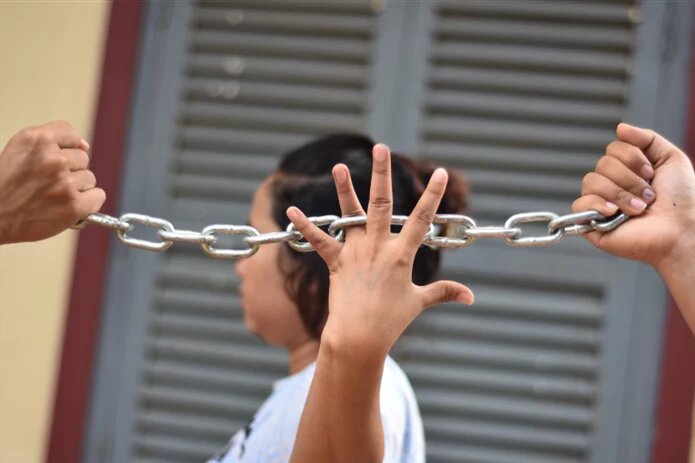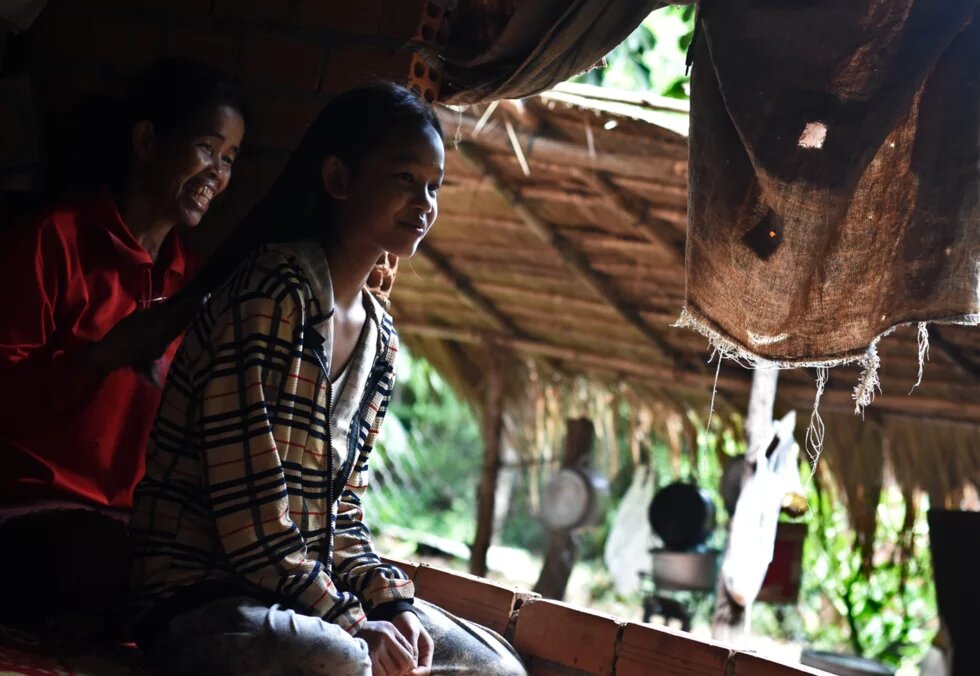
Chhang Kheang first went to Thailand in 2008. The migrant worker who lives in Kampong Cham province moved to the neighboring country to work as an undocumented construction worker, earning around $5 a day. This was a meager salary, but it was just enough to support her family in Cambodia, including a young son and daughter, she had to leave with the child’s grandmother.

Kheang was one of close to a million migrant workers who are in Thailand at any time to work low-paying jobs because the Cambodian economy does not have enough jobs. These workers often move to Thailand without the necessary documentation and are always at risk of deportation or harassment from law enforcement. Being undocumented also means that workers have no access to worker protections, little legal recourse and often employers have no incentive to treat or pay workers fairly.
Cambodians working overseas often find themselves in precarious situations, including being trafficked for work or other exploitations, and have very little support from state agencies on either side of the border - be it in Cambodia, Thailand, China or Malaysia.
This job is often left to civil society groups like Legal Support for Women and Children (LSWC) to provide support to Cambodian workers who have been trafficked or placed in exploitative situations. The NGO also works with the Cambodian government and other local groups to train law enforcement agencies to better protect migrant workers and trafficked persons.
After returning to Cambodia during the Covid-19 pandemic, Kheang lost her mother, her son dropped out of school to work in Phnom Penh, but the family still had very little income.
LSWC helped Kheang’s family with food packages during the pandemic and to access government services in Cambodia. Given the emotional burden of her family’s situation, the organization also provided Kheang mental health services, an essential requirement for helping returning migrant workers or trafficked individuals.
However, like tens of thousands of families in Cambodia, Kheang’s family was indebted. The family had loans worth $1,500 that have now ballooned to $5,000 with $270 a month payments. These payments were crushing for her family and forced them to sell their farmland and use other land documents as collateral to get micro loans.
As her family’s economic situation was precarious, her husband had to return to Thailand and is working without the necessary documents. Kheang now tends to animals and relies on the money her husband sends from Thailand.
“I don't have any dreams or plans for the future. I just hope to repay the bank as soon as possible and get back my land documents,” she says.
This article is an excerpt from "Profiles of Courage." Click here for the full reading.
